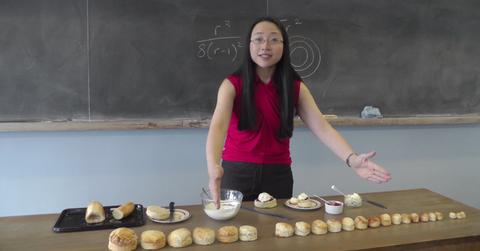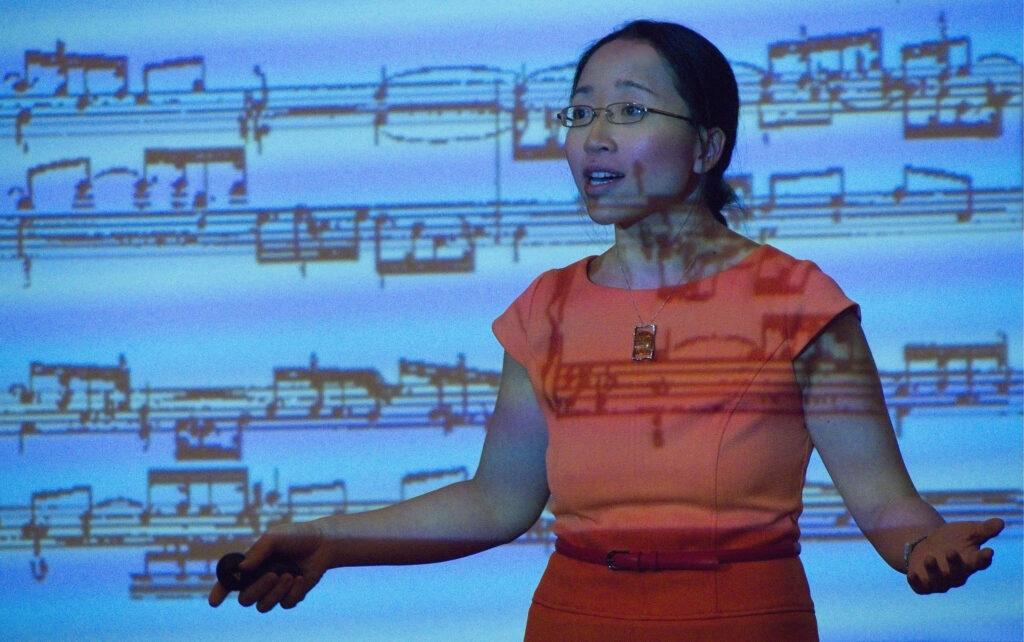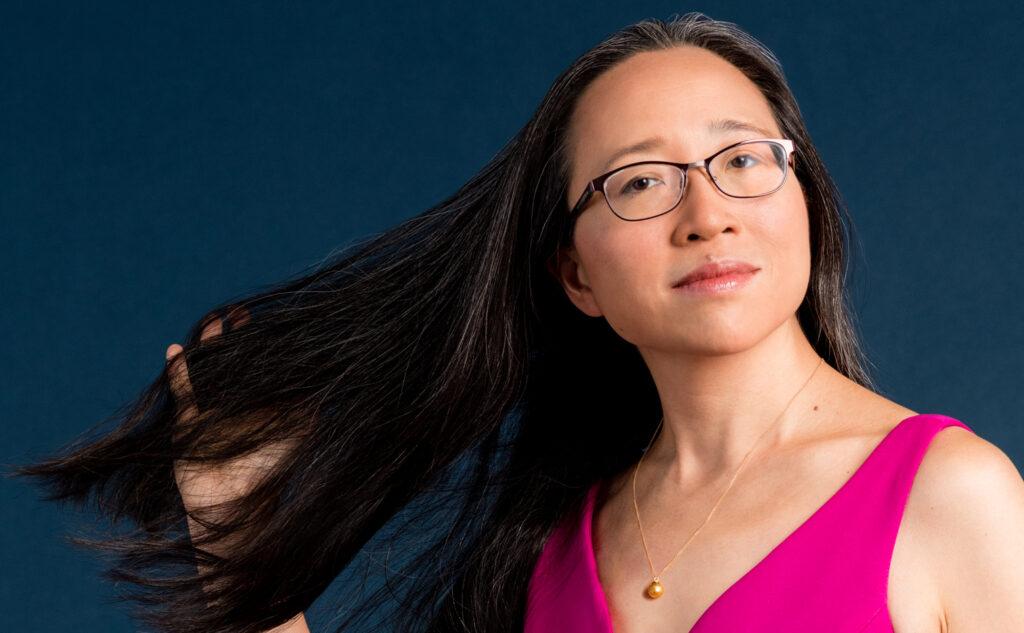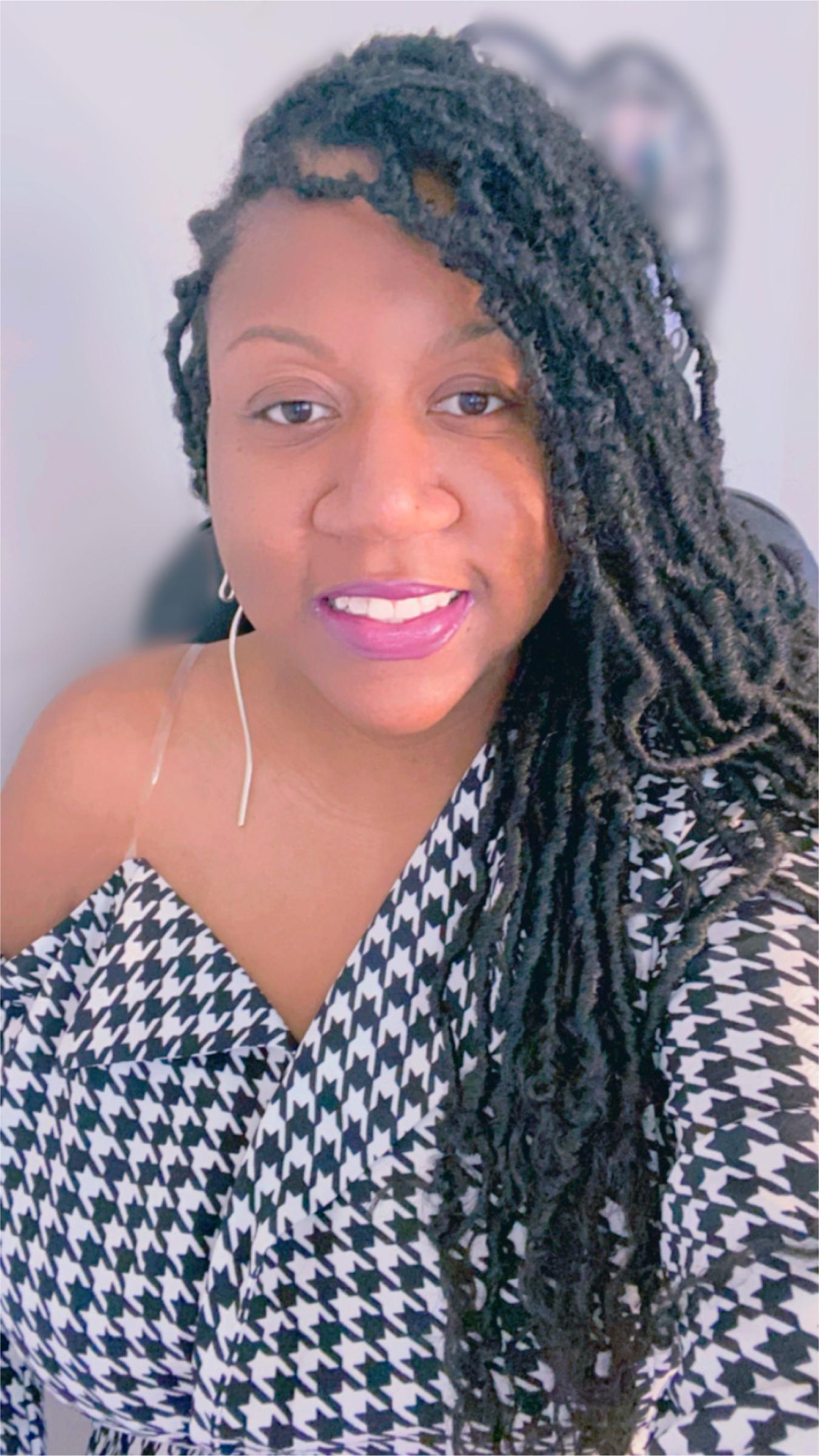How Eugenia Cheng Is Redefining What It Means To Be A Mathematician

Eugenia Cheng wears many hats: mathematician, pianist, professor, author and scientist-in-residence at The School of The Art Institute of Chicago. With perseverance and vision, she has built a career that bridges rigorous mathematics with creative communication, bringing complex ideas to wider audiences.
Along the way, she has published seven books with Hachette Book Group, including one for children, proving that math doesn’t have to be intimidating, it can be accessible, joyful and deeply human. In 2024, Eugenia won the LA Times Book Prize for science and technology for her book, “Is Math Real? How Simple Questions Lead Us to Mathematics’ Deepest Truths.” Her new book, “Unequal,” Eugenia explores how mathematics isn’t a series of rules, facts or answers, but rather an invitation to a more powerful way of thinking.
Though she never set out to become an author, Eugenia embraced the opportunity to share her perspective and passion for problem-solving with readers around the world.
Her Agenda sat down with Eugenia to discuss her career, her unexpected path to publishing, and how she’s redefining what it means to be a mathematician in today’s world.
Her Agenda: What do you feel is your greatest accomplishment thus far in your career?
Eugenia Cheng: I think that my greatest accomplishment is that I achieved what I was originally setting out to do and then I realized that I wanted to do something more; and then I did that. I started off just being a normal math professor, and I worked so hard to achieve that; and when I got tenure I realized that I wanted to do more than that. I wanted to speak to more people in the world.

Her Agenda: When did you begin your career?
Eugenia Cheng: Well, I was always working towards it because I wanted to be a math professor since I was quite young – I’ve been working towards it my whole life, starting in elementary school. I came from the kind of immigrant family where failure isn’t an option. I felt I had to achieve the maximum amount all the time so that I would do justice to the sacrifices that my parents made.
Her Agenda: When did you publish your first book?
Eugenia Cheng: So, 2013 is when I proposed my first book, “How to Bake Pi” and that came out in 2015. And that was successful and was also when my freelance career started developing. 2015 is when I really started to do public speaking, freelance, and building a different sort of career for myself.
Her Agenda:Did you know that you wanted to be an author or did it organically happen?
Eugenia Cheng: It organically happened. I actually find it quite baffling when people have a dream of writing a book, because often they say they have a dream of writing a book, but it’s not that they have something specific they want to say, they just like the idea of writing a book. Where I was the opposite, I always had a lot to say, but I didn’t specifically want to write a book, I just wanted to communicate things. All I’ve ever wanted to do is reach more people.
Her Agenda: How did you come to be a part of the Hachette Book Group?
Eugenia Cheng: I was based in the UK at the time and I got a contract with Profile, and they had worldwide rights, so I went to New York with their agent and met a bunch of publishers in 2014. I had a really great meeting while I was there, and I will never forget the day I got the call from the agent, and heard what they were offering for my book. They loved it and I loved them, and I’ve been with them ever since.
Her Agenda: What’s a goal you’ve yet to fulfill?
Eugenia Cheng: At some point I really want to write a memoir, not to tell people about my life, but to put myself out there as a case study of how a minority person became a mathematician. I’d like to show the struggles. I’ve always been the minority. I’ve never had an Asian professor. I’ve given seminars where I am the only female in the room, and non-white person in the room. In addition, being a woman in a male-dominated field, it took me a very long time to find the right partner that wasn’t put off by that success.
Her Agenda: What advice would you give a young minority millennial woman trying to find her way in her career?
Eugenia Cheng: I would like to give advice about imposter syndrome. It’s probably not something you’ve made up in your head if you’re a minority woman. It’s probably people deliberately making you feel like you don’t belong, because of their biases. I don’t think we should call it imposter syndrome, I think it should be called “surrounded by unsupportive people syndrome.” I actually have reverse imposter syndrome, where imposter syndrome is believing you’ve achieved things you don’t deserve. My reverse imposter syndrome is I’m pretty sure I haven’t received recognition for things I deserve, or that it’s taking me longer to receive recognition.

Her Agenda: Do you have a favorite quote?
Eugenia Cheng: This quote is my own and is in the dedication of my book “Is Math Real?” and I said it when I accepted the LA Times Book Prize, and it really resonated with people:
“If you have been made to feel bad at math, you didn’t fail math, math failed you”- Eugenia Cheng.
[Editor’s note: This interview has been edited for length and clarity. This feature is sponsored by Hachette Book Group.]






